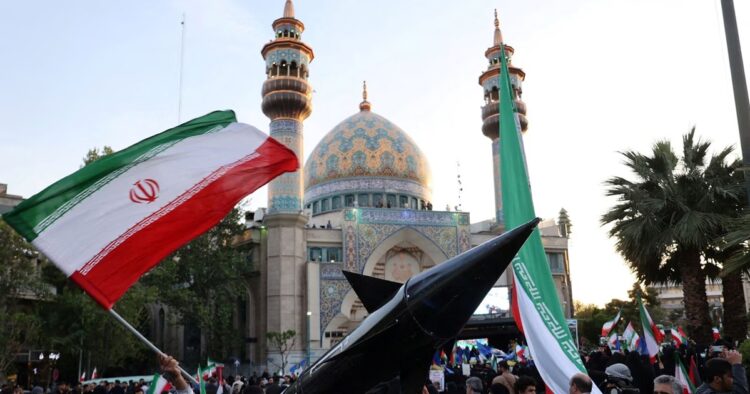Recent statements from a top adviser to Iran’s Supreme Leader Ayatollah Ali Khamenei have reignited worries regarding the nation’s nuclear intentions, especially in light of escalating tensions with Israel.
Kamal Kharrazi, the adviser, hinted at the possibility of Iran shifting its nuclear doctrine if it perceives its existence to be under threat by Israel.
Kharrazi emphasized that while Iran currently has no decision to develop nuclear weapons, if its existence were to be endangered, the country might be compelled to reconsider its military strategy.
These remarks come at a time of heightened tensions between Iran and Israel, following Iran’s response to the bombing of its embassy in Syria’s capital, Damascus, with a series of explosive drone and missile attacks targeting Israeli territory.
Despite previous assertions by Ayatollah Khamenei against the development of nuclear weapons, there have been indications from Iranian officials that external pressures, particularly from Western countries and Israel, could lead to a reassessment of Iran’s nuclear posture.
Efforts to engage with the International Atomic Energy Agency (IAEA) have yielded mixed results. While discussions between Iranian nuclear officials and IAEA representatives have been described as positive, tangible progress has been elusive.
Rafael Grossi, the head of the IAEA, expressed frustration over Iran’s alleged lack of cooperation, noting the urgency for concrete measures to address concerns regarding Iran’s nuclear activities.
Last year, Iran made commitments to assist in investigating uranium particles found at undeclared sites and reinstall monitoring equipment. However, according to IAEA reports, these assurances have not led to significant advancements. Grossi emphasized the urgency for change, stating that the present state of affairs is unsatisfactory.
During discussions between Grossi and Iranian officials, both sides acknowledged a 2023 agreement as a potential framework for cooperation.
However, implementation has been slow, and concerns were raised about external interference, particularly from Israel, which Iran perceives as a hostile actor. The situation underscores the delicate balance of power in the region and the complex dynamics surrounding Iran’s nuclear program.
As tensions persist, the international community faces the challenge of finding diplomatic solutions to prevent further escalation and promote stability in the Middle East.

















Comments